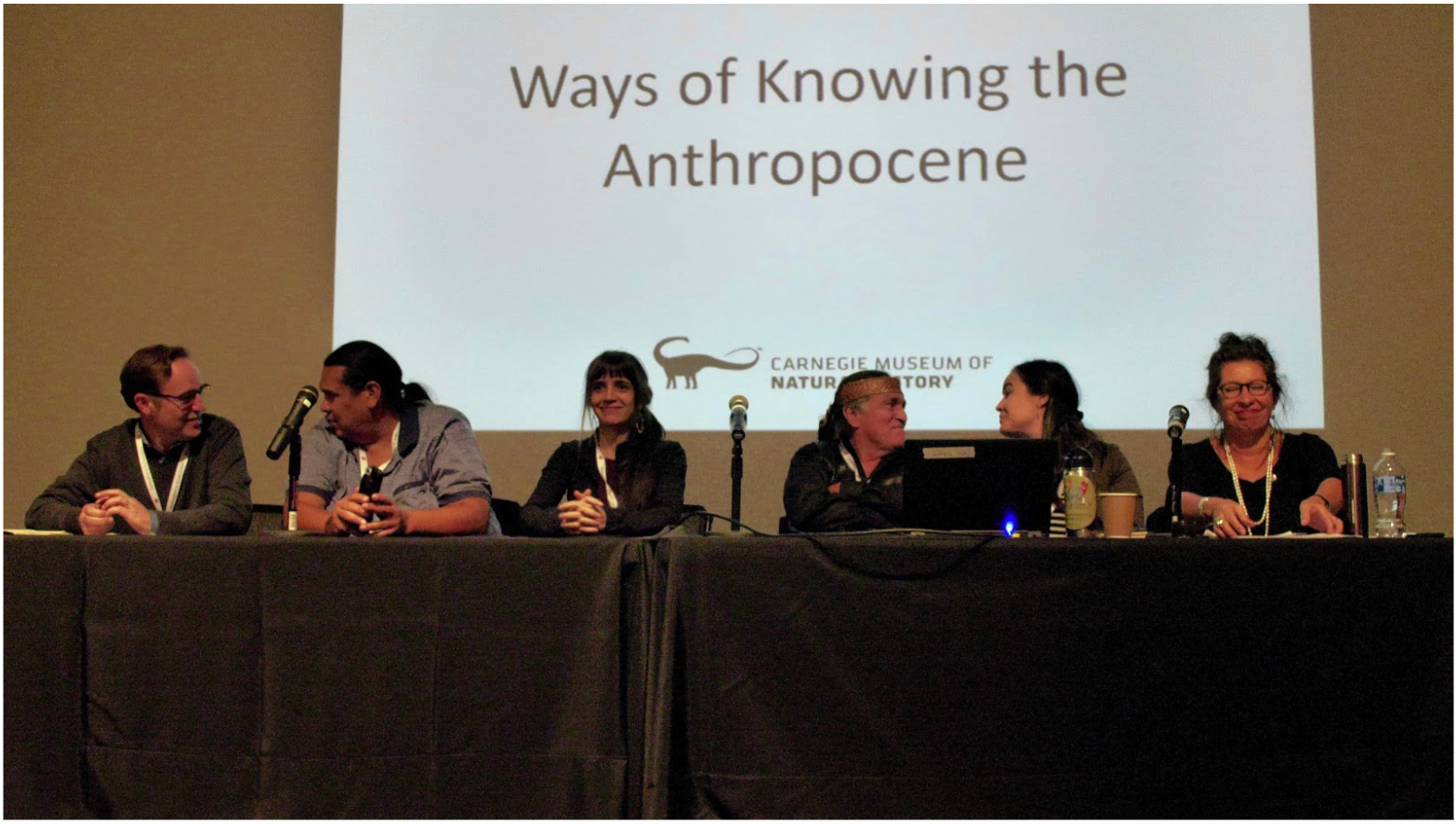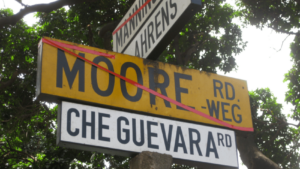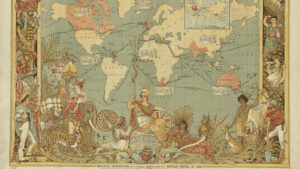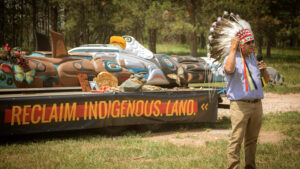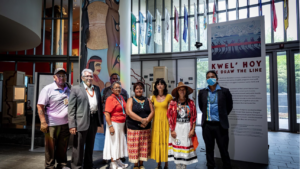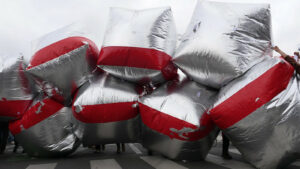Panel organized by The Natural History Museum at the ICOM NatHist Conference Anthropocene: Natural History Museums in the Age of Humanity at the Carnegie Museum of Natural History in Pittsburgh
Ways of Knowing the Anthropocene: Connections to Indigenous Cultures
Presenters:
- Valine Crist (Haida Nation), Representative of Haida Gwaii Museum and the Coalition of Museums for Climate Justice
- Nuno Porto, Curator at Museum of Anthropology, BC
- Beka Economopoulos, Director of The Natural History Museum
- Jewell James (Lummi Nation), Master Carver of House of Tears Carvers
- Reuben George (Tsleil-Waututh)
Moderator:
- Judith LeBlanc (Caddo Nation of Oklahoma), Director of Native Organizers Alliance
The late Sioux scholar Vine Deloria Jr. argued that “The primary difference between the Western and Indigenous ways of life is that Indians experience and relate to a living universe, whereas Western people reduce all things, living or not, to objects.” As representatives of museums of natural history, we are implicated in the processes of objectification and decontextualization that Deloria describes. But we also have the power to bring the past to bare on the present, and to use our resources to lift up the stories of the people who are struggling to protect the living universe for the future. In the context of the Anthropocene, when the human footprint is indelibly inscribed in the planet, we face a new responsibility to rethink our relationship to objects and to unlearn some of the ingrained habits of thought that constrain our conception of the museum, exhibition, and display. The epochal shift marked by the term “Anthropocene” provides us with an opportunity to question the epistemological foundations of our institutions and to embrace perspectives that have been historically excluded from our worldview. This panel will feature museum professionals and Indigenous leaders invested in bringing together scientific and Indigenous voices and ways of knowing. What practices of collecting, curating, and display can properly respond to the epoch in which we live? How can we not only address the Anthropocene but also learn from it?
Learn more about the conference here:
Anthropocene: Natural History Museums in the Age of Humanity
The conference theme will be the Anthropocene, which will give us an opportunity to feature initiatives that explore the nexus between art and science, as well as to think deeply about global conservation of biodiversity landscapes. The program will be filled with opportunities not only to reflect on our practice, but also to socialize while participating in a range of high quality entertainment.
The Anthropocene is the concept that human activity has had such a profound and pervasive impact on the planet that its effects will be present in the fossil record millions of years from now, thus warranting a dedicated geological era. The concept of humanity’s impact on, and interaction with, the global environment touches on science, conservation, artistic expression, philosophy and even recreation. Natural history museums are at the nexus of these considerations, researching arcane ecological and evolutionary concepts, interpreting them for the public.
The conference will explore the various manifestations of the Anthropocene within the fields of nature, art and the humanities as well as synergies between them. During the conference we will hear from scientists, authors, fine artists and social historians all coming together to explore this topic together.

